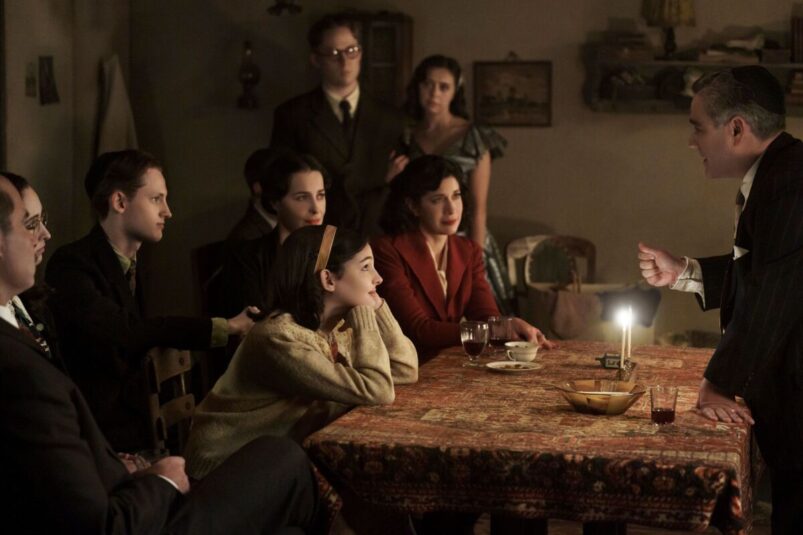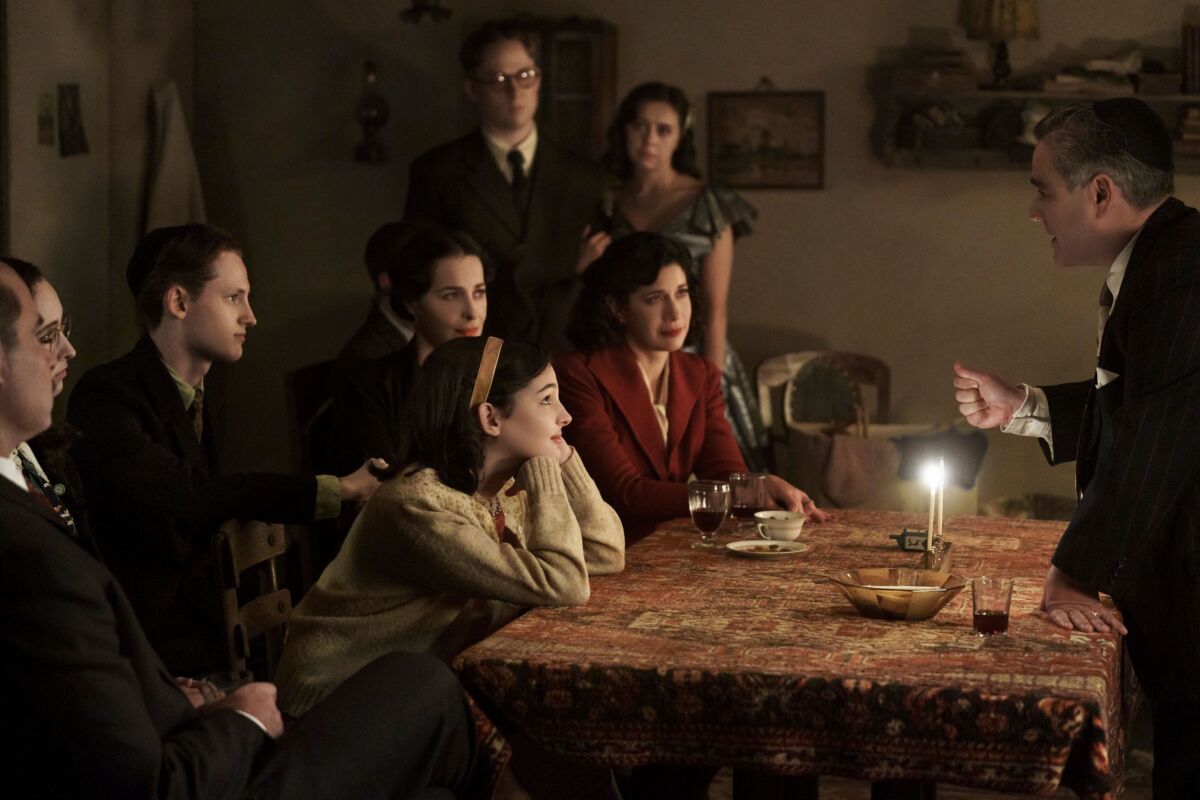The story of Anne Frank is one of the most famous narratives of the Holocaust, a tragic tale of antisemitic violence that has been immortalised because of the diary she kept while in hiding. While it has been the subject of many different adaptations, most have been from the perspective of Anne herself. A Small Light, the new show from National Geographic, has gone for a unique approach and tells the story but with the individual who tried to hide the Franks as the main character.
A Small Light is an eight-part show that follows the story of Otto Frank’s secretary Miep Gies (played by Bel Powley), and her time living in occupied Amsterdam. The show is a mix of her navigating her personal life and her new marriage with her husband Jan (played by Joe Cole) while they both work in secret to aid Jews as they are persecuted by the Nazi invaders.
Miep Gies is an integral part of the story of Anne Frank. While it was Frank who wrote the diary during her time living in the Secret Annex, it was Gies who recovered the diary and later gave it to Otto Frank after he was liberated from Auschwitz-Birkenau. She wrote her own account called Anne Frank Remembered, and it was researching this story that inspired the show creators Tony Phelan and Joan Rater to recreate these events after they first visited the Anne Frank House.
For the most part, it is an excellent show. Though those familiar with the diary are aware of how the tale tragically ends, A Small Light manages to ramp the tension with every knock on the door or unexpected development that the Gies’ face. There are even moments of humour and romance which offer much-needed levity from such a harrowing story.
One of the main subplots is how Miep and Jan try to navigate their relationship with each other while aiding the Dutch resistance movement and helping Jews escape Amsterdam. There are arguments which come from the nature of what they’re doing, but there are also sweet moments. A nice scene is where they share a quiet moment in the bathroom together as it’s the only place they can get peace, only to hear a knock at the front door, and for Miep to ask if she’ll be allowed to finish her bath if it’s a Nazi officer arresting her.
There is a notable issue, though, and this is a problem that every historical adaptation faces. The show even tries to mitigate it by having a disclaimer at the beginning of each episode, explaining the fact that while this story is based on true events, there were some changes for the sake of dramatisation. This can be a bit of a double-edged sword for historical adaptations, as the writers are trying to appeal to the audiences but also stay at least somewhat faithful to the events as they happened.
Yet there are some changes which are questionable. At one point, the Nazis cancel Miep’s passport, and she is supposed to return home, prompting her to marry Jan so she can obtain Dutch citizenship. However, considering how much the writers try to portray Miep as the righteous rebel she was, it’s odd that they would omit the fact that her passport was invalidated because she refused to join the Nazi women’s association in Amsterdam.
But, by taking liberties like these, it also takes the opportunity shed light on other significant events and historical characters during this time, like the gay Dutch resistance fighter Willem Arondéus, who said “tell people that homosexuals are not cowards” before his execution. Though the show portrays him as being something of a mentor to Jan Gies – despite being a member of the Dutch resistance himself until 1944, there aren’t any sources of them working together – it’s nice that a comparatively lesser-known historical figure is brought to the attention of an audience who may not be aware of him.
As for the performances themselves, the main cast does exceptionally well. There is not an actor among the major characters who gives a lacklustre performance. Again though, there is another issue that is distracting enough to take away from the episodes: while some of the actors successfully put on a Dutch or German accent, there are other minor characters who don’t. One especially noticeable moment is in episode six when members of a Nazi organisation investigate the Gies household, and one of them speaks with a thick English accent.
However, what A Small Light lacks in vocal authenticity, it more than makes up for it in a gripping narrative and strong acting. There have been adaptations of Anne Frank’s story where Miep Gies has a much more major role than others – though quite different, the 1988 TV movie The Attic: The Hiding of Anne Frank is still worth watching – and while this show has changed some things for the sake of drama, it is the one adaptation that arguably does the best service to her memory.
READ MORE: 10 Best American History Books
Some of the coverage you find on Cultured Vultures contains affiliate links, which provide us with small commissions based on purchases made from visiting our site.


